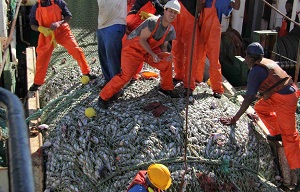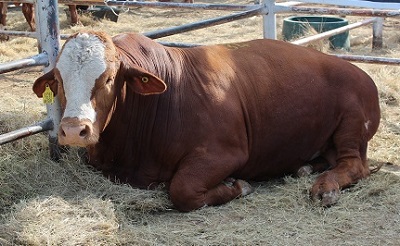
Cultivated grazing gets cattle through drought

Councilors of Oshikoto, Omusati, Kunene and Kavango regions with Kunene Governor, Hon. Joshua //Hoebeb (standing in the middle, with green lanyard), and the owner of Farm Blystroom, Dawie Kok (fourth from left).
conducted a two-day workshop to show the benefits of cultivated pastures.
The workshop concluded with a visit to inspect dry-land cultivated pastures in the Grootfontein district, on the farm Blystroom of Mr. Dawie Kok, who was named “Young Farmer of the Year” in 2011.
The workshop was well attended with 53 participants from various key stakeholders in Agriculture, ranging from regional council staff, Ministry of Agriculture Water and Forestry employees, various representatives of non-governmental organisations, GOPA, Meatboard of Namibia, Agribank (Farmers Support Project), to many prominent farmers from the northern communal areas.
The practice of using dry-land cultivated pastures to produce fodder, which is currently imported from South Africa at exorbitant prices, should be a priority in Namibia. By so doing, Namibia addresses the food shortage for livestock considering that most rangeland is severely degraded in the NCA’s and there is not enough to sustain livestock. Participants of the workshop were shown the method and implements used on the farm in this enterprise and how these can best be incorporated on a smaller scale on communal lands.
Kunene Regional Governor Joshua //Hoebeb praised the “revolutionary, breakthrough” technology of farming with grass, stating: “you are not a livestock farmer until you farm with grass!”
Hon. Dudu Murorua also made the point that “since new land is no longer created/available, we have to become more efficient on the land we already have, and also manage it sustainably”.












































